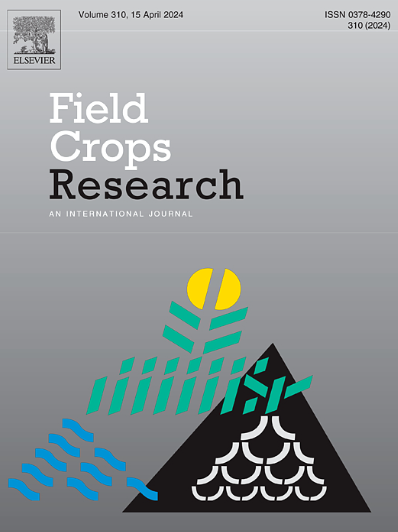Three-year field trials with seven biochars reveal minor changes in soil chemical properties but no impact on crop yield
IF 5.6
1区 农林科学
Q1 AGRONOMY
引用次数: 0
Abstract
Context
Biochar is frequently described as a “win-win” solution due to its potential to mitigate climate change while improving agricultural production. Intensive investigation has revealed that biochar can deliver agronomic benefits such as increases in soil water retention, fertility, and yield. However, benefits may be greatest in marginal soils such as those with low fertility, coarse-textured, contaminated, highly acidic, or receiving limited fertilizer and irrigation. While the agronomic benefits of biochar may be more limited in fertile soils, there is nevertheless a strong interest in applying it to prime soils for purposes other than crop production, such as climate change mitigation.
Objectives
The objectives of this study were to explore the impacts of biochar on processing tomato production in two fertile soils in a Mediterranean climate, and to evaluate the fertilizer rate, soil texture, and biochar production parameters and application rate which may optimize potential benefits and minimize negative consequences.
Methods
Seven biochars, produced from different feedstocks at different temperatures, were amended to a silt loam and sandy loam in three-year field trials, at two application rates, in conjunction with two synthetic fertilizer rates.
Results
No biochar had a significant effect on processing tomato yield, crop ripening, or plant nitrogen (N) uptake at any rate in any year in any location. Minor increases in soil pH, EC, and mineral N concentration were observed in years 2 and 3, though effects were inconsistent across biochars, locations, and years.
Conclusions
The findings suggest that biochar may confer limited agronomic benefits in fertile soils in Mediterranean climates, though its application resulted in minimal observed negative consequences. In similar contexts with comparable materials, biochar application for climate change mitigation may be pursued with minimal tradeoffs for agricultural production.
求助全文
约1分钟内获得全文
求助全文
来源期刊

Field Crops Research
农林科学-农艺学
CiteScore
9.60
自引率
12.10%
发文量
307
审稿时长
46 days
期刊介绍:
Field Crops Research is an international journal publishing scientific articles on:
√ experimental and modelling research at field, farm and landscape levels
on temperate and tropical crops and cropping systems,
with a focus on crop ecology and physiology, agronomy, and plant genetics and breeding.
 求助内容:
求助内容: 应助结果提醒方式:
应助结果提醒方式:


